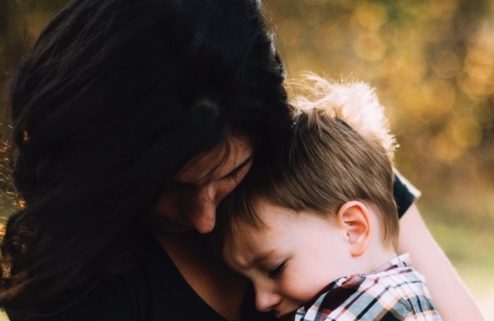3 Ways to Speak With Your Child About Mental Health
One of the most crucial (and sometimes challenging) aspects of raising kids is discussing mental health. Mental health is an important part of your child’s well-being, affecting every area of their life, from school performance to social interactions. According to DoSomething.org, one in every five young people between the ages of 13 and 18 will develop a mental illness in their lifetime.
Fostering open and productive conversations about mental health with your kids can be a great way to catch early signs of mental disorders to provide the right care. Here are a few key ways to speak to your kids about their mental health.
1. Frame Mental Health Positively
One effective strategy to speak to your kids about mental health is to frame mental health positively. Just as physical health is a regular part of everyday conversations, mental health should be as well. This normalizes the topic and sets the stage for more in-depth discussions as your child gets older. For example, when discussing learning disabilities, focus on the child’s unique way of processing information rather than labeling it as a deficit. It will help foster self-acceptance and encourage them to be open about their experiences.
2. Educate and Empower
Educating your child about mental health doesn’t just mean explaining what depression or anxiety are in ways they can understand but also making them aware of the wide spectrum of mental health conditions, including learning disabilities and ADHD. This knowledge can help children understand their feelings and behaviors and those of others. It also empowers them to seek help if they feel they’re struggling.
3. Create a Safe Space
Creating a safe, non-judgmental environment where your child can freely express their feelings is of utmost importance in nurturing their mental health. It’s more than just about understanding them. You need to take part in active, empathetic listening. Resist the urge to jump in with solutions or advice. Instead, validate their feelings and affirm that expressing their emotions is perfectly okay.
This open, accepting environment is particularly important for children with learning disabilities. These children often encounter additional challenges, such as frustration, misunderstanding, or feelings of isolation, which can significantly impact their mental well-being. By providing a safe space for them to articulate these feelings, you’re validating their experiences and helping them build resilience and emotional intelligence.
Discussing mental health with your child is an ongoing journey involving normalizing the topic, educating them, and creating a safe dialogue space. These crucial talks equip your child to effectively manage mental health issues, including depression, anxiety, or learning disabilities. If you suspect your child is struggling, professional services, including cognitive assessments and therapy, are readily available at Appalachian Counseling and Psychological Services. Taking the first step towards understanding your child’s mental health is vital, so never hesitate to seek assistance.




